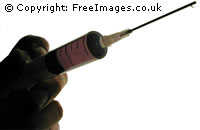Newly-emerging diseases warrant renewed efforts in vaccine development, says report
EASAC, the European Academies Science Advisory Council, has published a report in which it makes the case for renewed efforts by the EU to support vaccine innovation. The report, entitled 'Vaccines: innovation and health', reviews the latest scientific developments and their implications for public health, and identifies a series of matters that it says have to be tackled at European level in order to exploit the full potential of vaccines against infectious diseases. Only 50 years ago, the prevalence of infectious diseases in Europe was in decline thanks to improved public health and the introduction of vaccines, antibiotics and insecticides. Success in preventing and treating infection encouraged the assumption that the major problems had been resolved. But this confidence, the report claims, has been premature, as in the last century, infectious diseases presented significantly greater societal challenges in Europe as a result of changing ecology and the increasing risk factors associated with urbanisation and mobility, social disruption, misuse of medical technology and environmental change. Globally also, the rise of infectious diseases such as HIV/AIDS and tuberculosis has been unrelenting, with an estimated one quarter of total deaths in 2003 being attributed to them. Notwithstanding the rise of new problems and pathogens, the report argues that vaccines have provided a means to prevent many infectious diseases that have been the principal causes of mortality and morbidity. It cites vaccination programmes in the US that have seen a dramatic reduction, by as much as 99 per cent, in cases of previously common diseases such as measles, mumps and polio. While some progress has been made at EU level to adopt an integrated public health programme favorable for the implementation of vaccination strategies, the report suggests that the European Commission's role and responsibility in this domain could be increased further. Specifically, it calls on the European Commission's Health and Consumer Directorate General to be given executive powers and the effective instruments to act in support of public health preparedness, responsiveness and, when necessary, crisis management. At the same time, the report points to the need for improved strategic coordination across DGs and with Member States. This should, in particular: ensure public funding at early stage development of vaccines; identify and agree on common vaccine strategies; translate research advances in academia into products; and compare alternative approaches to vaccine innovation. As well as increasing the role of the European Commission in public health, the report also underlines the need for the recently established European Centre for Disease Control (ECDC) - an EU agency seeking to strengthen Europe's defences against diseases such as SARS, HIV/AIDS and influenza for new threats - to become more active in the EU-wide surveillance of current and emerging infections, and in coordinating and sharing best practice to ensure that Member State authorities provide standardised and detailed surveillance statistics. The ECDC should also lay down its long terms objectives, says the report, and work to remove any unnecessary barriers in surveillance mechanisms for human and animal infections. In the area of research and development (R&D), while recognising the efforts that have already been made by the EU to support research into poverty-related diseases through the Sixth Framework Programme (FP6) and the EDCTP (European and Developing Countries Clinical Trials Partnership) initiative, the report makes several recommendations to help the Commission tackle what it claims are 'current strategic weaknesses' in the sector, particularly in terms of the lack of adequate capacity for clinical trials financed by the public sector. Suggestions for improvement include incorporating further vaccine research and technologies for evaluating efficacy and safety into the Seven Framework Programme (FP7); extending research collaboration with developing countries beyond the 'limited' remit of the EDCTP; increasing support for multidisciplinary research centres; facilitating public-private sector partnerships for vaccine R&D; and supporting training and skills development for staff working in the field. Other recommendations include streamlining the regulatory framework and decision-making processes; and finding ways to eliminate current disincentives to manufacture vaccines, for example by reducing manufacturers' exposure to the threat of litigation and promoting the effective promotion of intellectual property rights.



